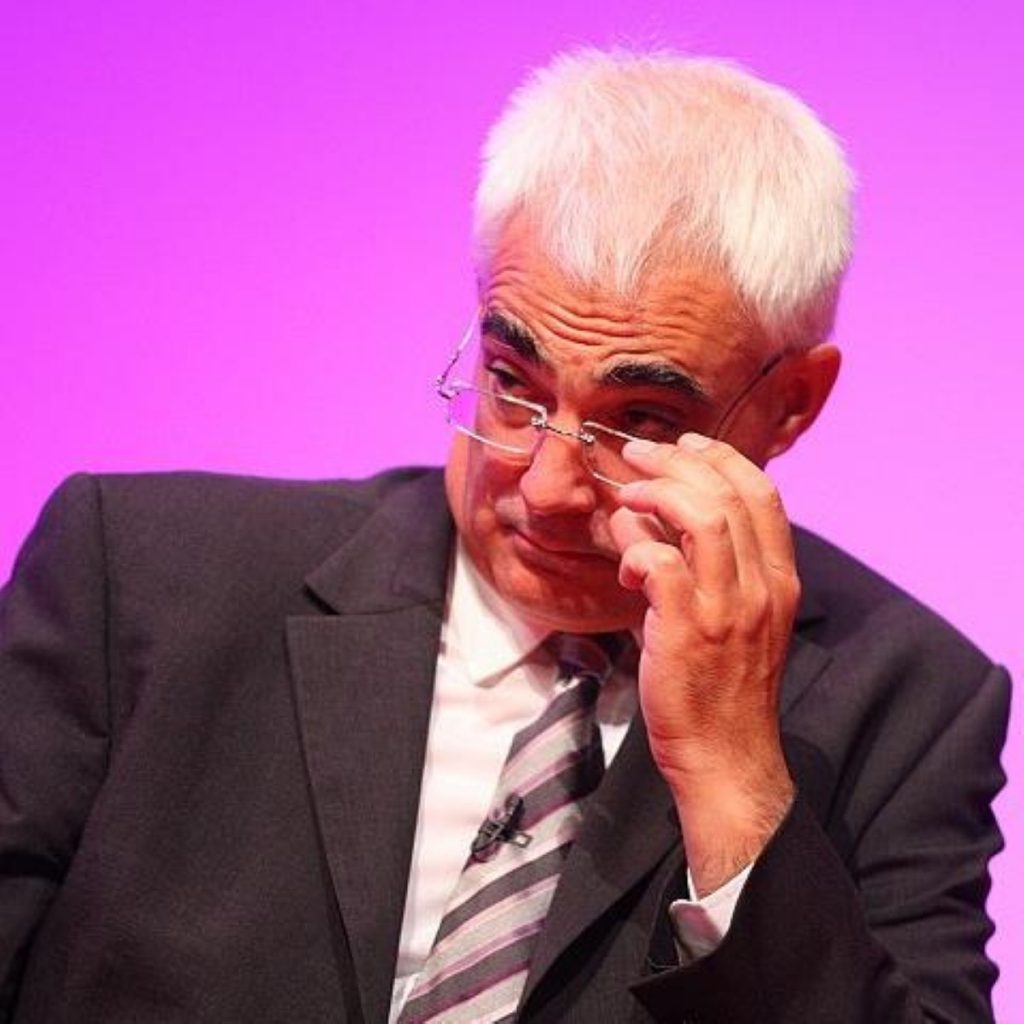US will talk but not act at G20
By Laura Miller
Chancellor Alastair Darling was today forced to rein in his hopes for a recession-beating “new global deal” next month, after Washington said it would not be negotiating a “specific commitment” at the G20 meeting.
Mr Darling said it was important to be “realistic” about what the London summit could achieve, and that he did not expect the leaders of the world’s 20 wealthiest nations to use the occasion to make a final decision on the global economy.
“I think we have to be realistic about what we can do together,” Mr Darling said in the BBC interview today.


Calling the summit “part of the process”, the chancellor moved to lower expectations that the G20 would be a key point in the global road to economic recovery.
“I don’t think things begin or end either this weekend or on April 2. It will continue beyond that, quite simply because the world’s economy is continuing to develop,” he said.
Mr Darling repeated calls for better use of international institutions, while playing down talk of a rift between the US and Europe.
“I don’t actually think that the divisions between the European countries and the US are anything like what has been described over the last few days,” he said.
Earlier today a Downing Street spokesman told the press: “We have always made clear that the main objective is to demonstrate that the world is coming together to deal with the common challenges that we face …We are certainly not going to get into some sort of absurd media expectations game.”
But the cooled rhetoric is in stark contrast to Gordon Brown’s earlier confidence that the G20 would secure a “new global deal” of fiscal packages and reforms of international financial regulation.
Some commentators believed multi-lateral support at the G20 would have provided cover for Mr Brown to inject cash at home via extra state spending or tax cuts in the budget on 22 April.
But now comments by a spokesman for President Obama have added to fears that the G20 may become just a talking shop, provoking very little action to tackle the financial crisis.
“We’re not going to negotiate some specific economic percentage or commitment, but continue to talk about the notion that … it is important that the world act together in growing our economy, as well as that we together take steps to ensure that the crisis doesn’t happen again.
“Different international bodies have said that the global economy is likely to contract at about 2 per cent of GDP over the course of the next two years, and that their recommendation is that countries stimulate their economy to that degree.
“That’s in large measure what the United States has done, and the president will talk to other nations of the G20 about acting together in hopes of doing the same without, again, negotiating some specific commitment.”

